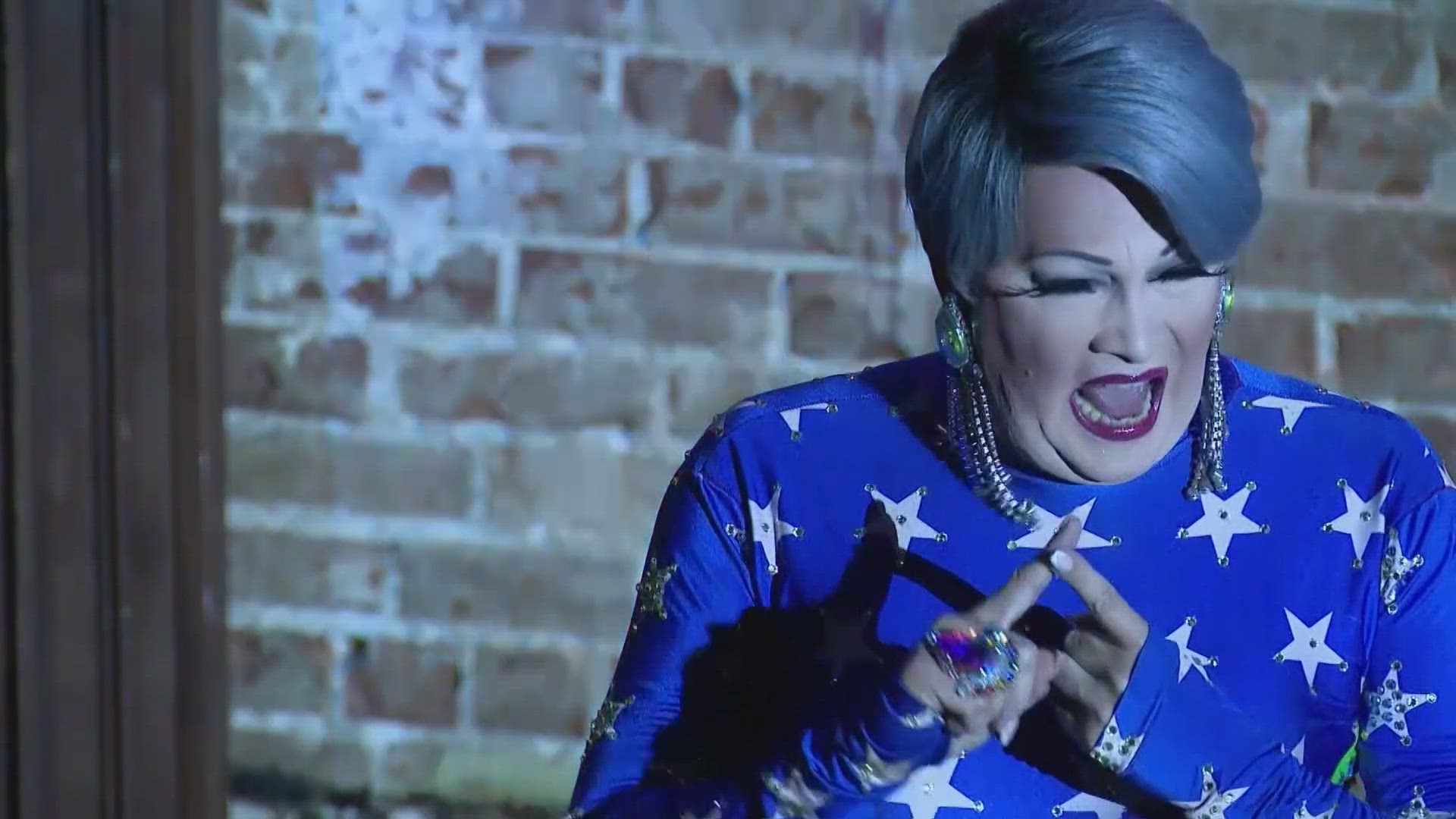TEXAS, USA — Closing arguments wrapped up Tuesday in the combined hearing and trial to decide the fate of House Bill 12, which would effectively ban drag shows in front of children.
Before adjourning, federal judge David Hittner told the courtroom, "I have not reached a final decision as of yet – I really have not."
He indicated he could issue a temporary restraining order on Thursday, ahead of when the bill is scheduled to become law, which is Friday, September 1. That would temporarily keep the bill from becoming law while the case plays out.
Both sides have until September 6 to file additional documents.
The case centers around SB 12, which prohibits sexually oriented performances in front of children and fines violators up to $10,000 with punishments of up to one year in jail.
Read more of our coverage:
- Texas House advances SB 12 which could indirectly target drag shows
- New version of bill that could ban drag shows for children in Texas doesn't mention drag shows. Here's what it now reads.
- Dozens testify as Texas Senate discusses ban on drag shows for minors
- Judge to consider federal lawsuit against Texas bill aimed at restricting some drag shows
The ACLU represents five plaintiffs, including drag queen Bridgette Bandit. At a press conference, Bandit said, “I was very happy to advocate for my community, drag community, queer people, queer artistry.”
The ACLU argues the bill targets drag shows because of the bill’s language of “actual or simulated contact of private parts” and “use of prosthetics that exaggerate male or female sexual characteristics." Both parts describe typical drag shows.
The plaintiffs claim that drag performances are protected free speech and are about art, healing and political expression. They maintain drag is not sexual.
The state argues this bill does not target drag performers and does not violate free speech. The attorney for the Texas Attorney General's office said, "It simply makes performances less graphic in front of children."
ACLU attorney Brian Klosterboer responded, “All of the plaintiffs testified that their shows, while they could be considered sexual by some and that’s why there could be the chilling of free speech, they’re not those most extreme cases the state tried to bring up. Those extreme examples are already prohibited by Texas law, the obscenities statute."
The state’s attorneys added that a private citizen could not simply complain and get a performer or business cited, that would be up to authorities and due process.
After both sides file their additional paperwork, the judge has up to 28 days to issue his opinion.

